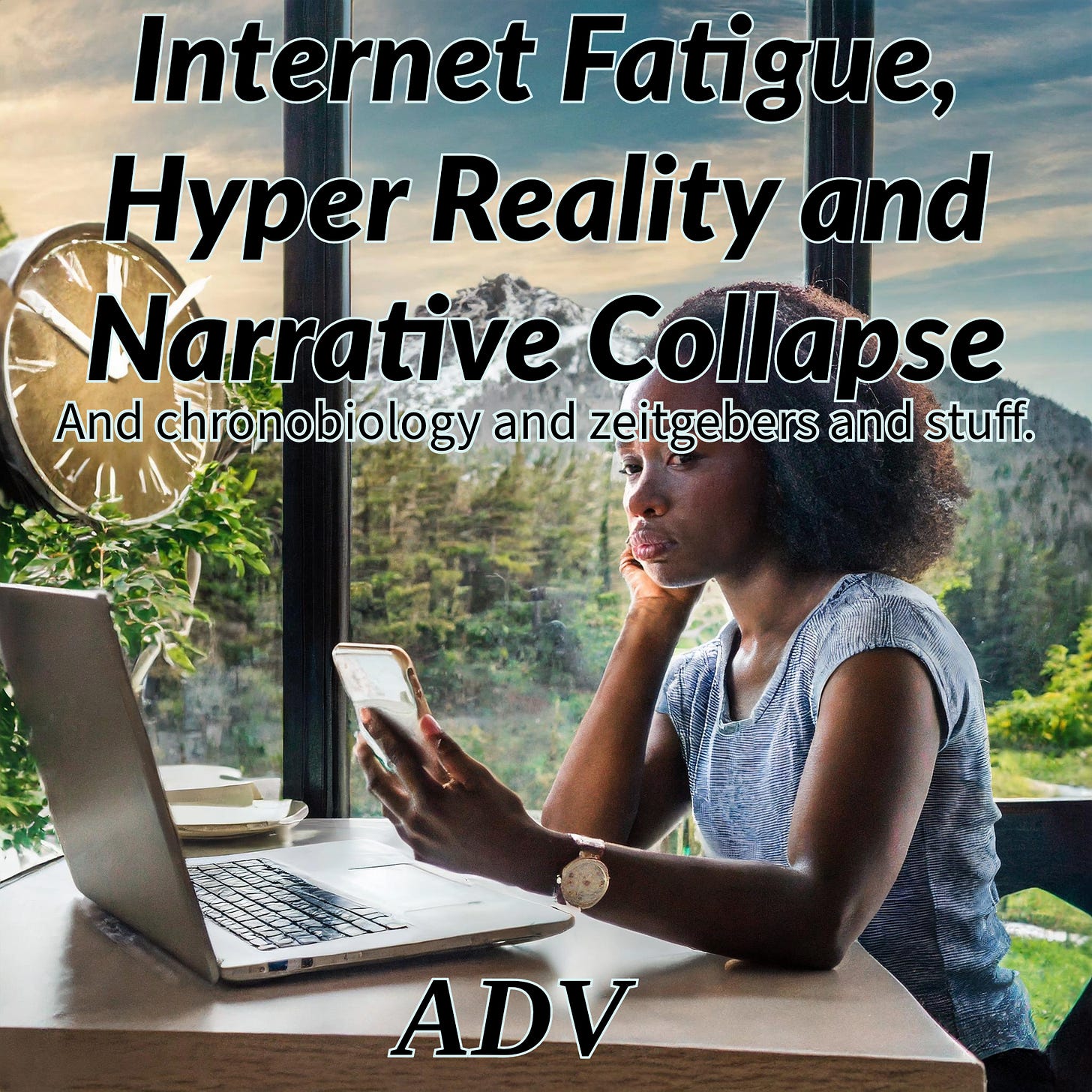Internet Fatigue, Hyper Reality and Narrative Collapse
And chronobiology and zeitgebers and stuff.
This is just to say that I have been contemplative and quiet lately. Watching. Thinking. Listening. Looking.
There are many reasons for this, however, one is that I needed to take a step back from social media, but more than this. I am weary of the internet.
What have we become? Where are we headed?
Hyper Reality
The world is within our reach, yet there is a surge in loneliness and isolation. Instead of engaging in profound learning, our children are losing themselves in endless scrolling and constant comparison with their peers. The truth is becoming obscured amid a sea of opinions, false narratives, propaganda, and divergent storylines. People form their perspectives based on a smorgasbord of facts available to them, believing they can construct a well-informed opinion from only a fraction of the story. Unfortunately, this approach often neglects the broader context, and genuine understanding requires more than a few TikTok videos to uncover the complete narrative. This is the hyper-re…
Keep reading with a 7-day free trial
Subscribe to ADV's Healthy Dose of Truth to keep reading this post and get 7 days of free access to the full post archives.





